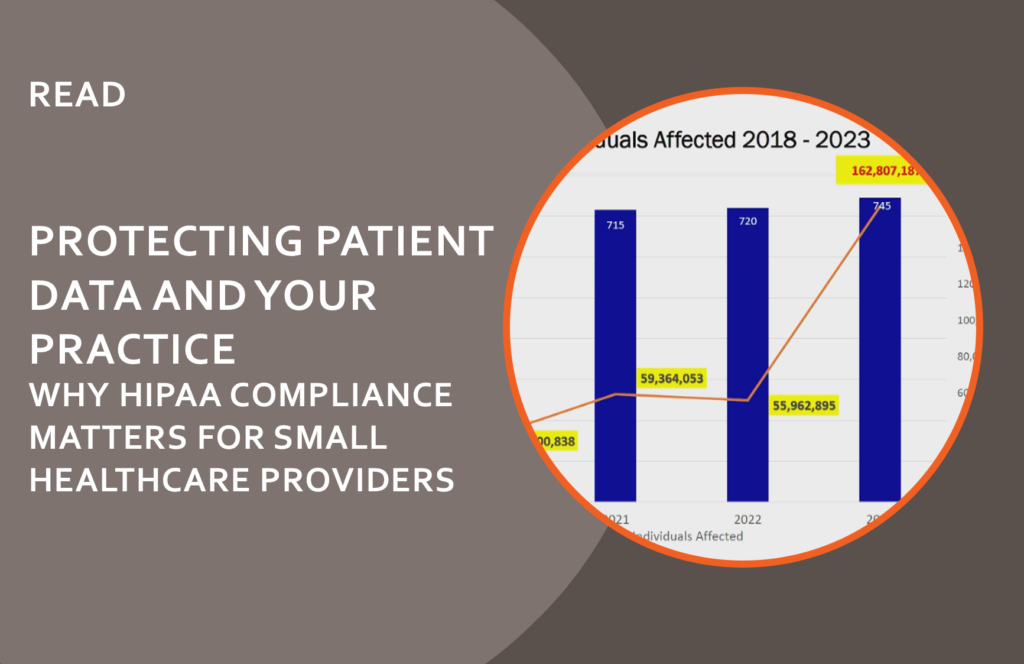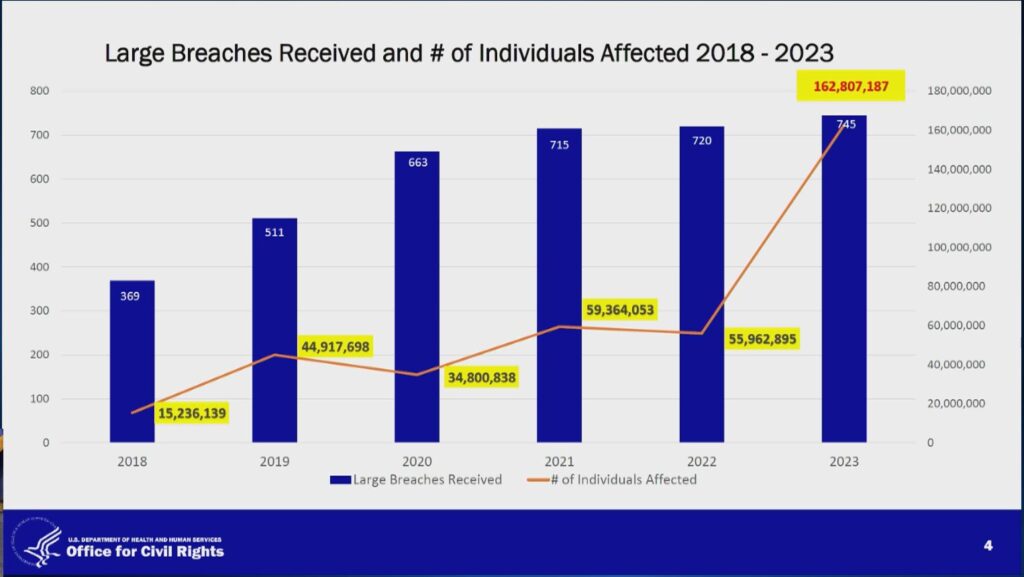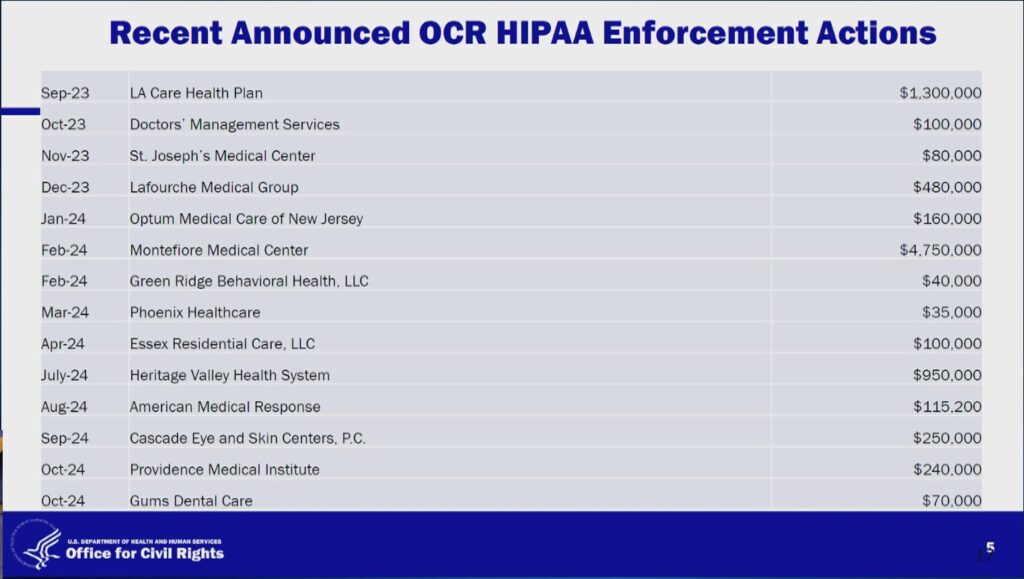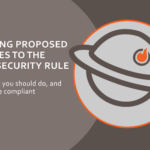READ: Protecting Patient Data and Your Practice: Why HIPAA Compliance Matters for Small Healthcare Providers

Compliance with the Health Insurance Portability and Accountability Act (HIPAA) is more than just a regulatory requirement—it’s a critical component of protecting patient trust and ensuring the financial health of your practice. For small healthcare providers, maintaining compliance is no small task, but recent data shows the risks of falling behind are greater than ever.
Healthcare data breaches have seen an alarming increase in both frequency and impact. In 2018, breaches affected approximately 15 million individuals. By 2023, that number had soared to over 162 million—a staggering 10-fold increase. The volume of large breaches reported has also grown, from 369 incidents in 2018 to 745 in 2023.

For small healthcare providers, these numbers represent more than statistics—they’re a stark reminder of the vulnerabilities in patient data systems. A breach not only compromises sensitive information but also damages patient trust, disrupts operations, and can result in costly legal and regulatory consequences.
In addition, providers need to plan for third-party breaches. Change Healthcare’s data breach was originally reported as affecting 500 people and was recently officially updated to 100 million people. For more on third-party risk, see our webinar Good Fences Make Good Neighbors: Managing Third Party Risk.
OCR’S FOCUS ON HIPAA ENFORCEMENT
The Office for Civil Rights (OCR) has significantly increased its enforcement efforts in recent years, demonstrating that no healthcare provider is too small to be scrutinized. Recent settlements highlight this trend:
- Montefiore Medical Center: $4.75 million
- Heritage Valley Health System: $950,000
- Green Ridge Behavioral Health, LLC: $40,000
The penalties range from tens of thousands of dollars to multi-million-dollar fines, and these enforcement actions often stem from preventable lapses in compliance. Whether it’s failure to conduct regular risk assessments or insufficient safeguards for electronic protected health information (ePHI), the cost of non-compliance can far outweigh the investment in proactive measures.

WHY COMPLIANCE MATTERS FOR SMALL PROVIDERS
Small healthcare providers often operate with limited budgets and resources, making them particularly vulnerable to the consequences of non-compliance. Unlike larger organizations, smaller practices may lack dedicated IT or compliance teams, leaving them at greater risk for breaches and fines.
Beyond regulatory penalties, a breach can have lasting effects on a provider’s reputation and patient relationships. Patients expect their sensitive information to be safeguarded, and a failure to meet these expectations can erode trust and drive patients elsewhere.
STEPS TO STRENGTHEN HIPAA COMPLIANCE
Achieving and maintaining HIPAA compliance doesn’t have to be overwhelming. We recommend starting with a risk assessment to understand where vulnerabilities exist in your systems and processes so you can build a cybersecurity strategy that both complies with HIPAA regulations and enables your practice to have the resilience to recover in case of an event.
HOW WE CAN HELP
At OrbitalFire, we specialize in providing simple, effective, and affordable cybersecurity solutions tailored to small healthcare providers. From risk assessments to staff training and ongoing compliance support, we’re here to help you safeguard your patients’ data and your practice’s future. For help understanding what you can do to be compliant and protect your practice, Reach Out Today.
HIPAA compliance is no longer optional—it’s essential. By taking proactive steps today, you can avoid the growing risks of breaches and enforcement actions tomorrow.








